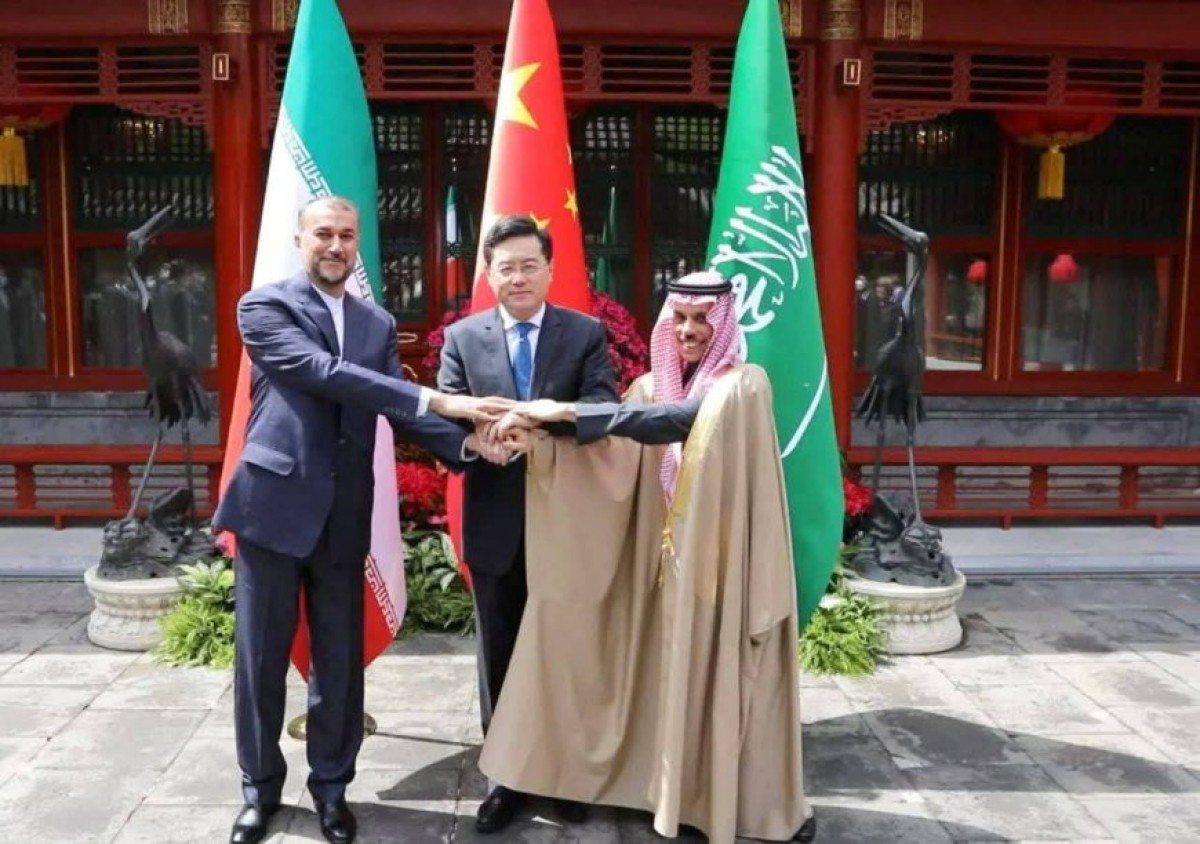 426
426
China's Emergence as a Global Power: West Asia as a Testing Ground?
China's Emergence as a Global Power: West Asia as a Testing Ground?
The West Asian region has long held a crucial position in the global arena, captivating the attention of major powers. In recent years, the rise of China has added a vibrant hue to the region's geopolitical landscape. In January 2023, China seized the world stage, assuming the mantle of a trustworthy global power and demonstrating a keen interest in reshaping the old rules of the game not only in West Asia but throughout the world. President Xi Jinping's resolute objective of fostering "humanity with a common destiny" has ultimately led to an upsurge in visits from foreign ministers of Middle Eastern countries to Beijing, underscoring China's ascending influence.
By: H. Zaïm-Bashi
China's sagacious mediation efforts between Saudi Arabia and Iran garnered international attention, with the New York Times characterizing the endeavor as a testament to President Xi's ambitions and Beijing as an alternative to the existing global order, dominated by the United States. China's success in this realm has elevated President Xi Jinping to the ranks of esteemed statesmen, such as Charles de Gaulle, Tito, Jawaharlal Nehru, Ahmed Sukarno, and Nelson Mandela. A European Council on Foreign Relations poll conducted in the autumn of 2023 in eight countries (Brazil, China, India, Indonesia, Russia, Turkey, Saudi Arabia, and South Africa) revealed that China enjoys greater popularity than the United States among the public in these nations.
In May 2023, China proposed negotiations for mediating between Israel and Palestine, hosting Palestinian Authority President Mahmoud Abbas and Israeli Prime Minister Benjamin Netanyahu. In the pursuit of a ceasefire, President Xi emphasized the imperative of "protecting the lives of civilians" and "preventing greater human tragedies." Remarkably, China's stance on the Gaza war closely mirrored its position on the conflict in Ukraine. In both instances, China, by maintaining its key principle of neutrality, has ardently pursued peace while at the same time deepening its ties with the Kremlin. Throughout the ongoing Gaza war, Beijing has placed the issue of human rights at the forefront of its political statements.
However, the crux of the matter lies in Beijing's endeavor to exploit these crises, namely Ukraine and Gaza, to undermine the United States and advance its global leadership. To erode the impact of Washington’s foreign policy, the Gaza war afforded China a better position in the war of corridors. Previously, the United States sought to challenge China's One Belt, One Road Initiative (BRI) by announcing the India-Middle East-Europe Corridor. The continuation of the Gaza war poses significant security challenges to this American initiative, while China's BRI continues to make remarkable strides forward.
Another facet of this intricate dynamic is the United States' tarnished reputation among countries in the Global South due to its unwavering support for the Israeli regime. Conversely, China has adroitly tailored its response by endorsing a two-state solution, refraining from condemning Hamas, and making symbolic efforts to rally support for a ceasefire among the developing nations as it perceives the waning influence of the US-led Western bloc as a corollary to its own ascent.
Moreover, the visits of several Arab foreign ministers to Beijing in consultation regarding the ongoing war on Gaza, even if devoid of tangible outcomes, symbolize the triumph of China's official diplomacy on the global stage.
In conclusion, the formulation of a Middle East policy represents the most arduous and simultaneously vital task for superpowers, given the convoluted conflicts in the region. While the United States, leveraging its military might, has exhibited an active presence in the Middle East crises, China, adhering to the fundamental principle of non-interference in the affairs of other nations, has deftly pursued cooperation with diverse actors in the region over the past two decades to safeguard its economic interests. This approach, commonly known as regional balancing, stems from a confluence of factors at three levels: domestic, regional, and global. China's commitment to respecting the sovereignty and territorial integrity of its Middle Eastern counterparts and accepting the political influence of Islam constitute pivotal components of its foreign policy. At the regional level, factors such as the significance of regional markets, energy resources, and the maintenance of partnerships assume paramount importance. Lastly, simultaneous competition and cooperation with the United States, the New Silk Road initiative, and China's soft power have all contributed to Beijing’s further pursuit of this approach in the Middle East.
 426
426
Comment
Post a comment for this article